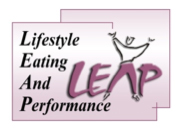Dr. Frank Lipman, a South African-trained medical doctor who practices a combination of western and holistic medicine at his Eleven-Eleven Wellness Center in New York City, offers some good information about food sensitivities and how to relieve them. In Gwyneth Paltrow’s Goop newsletter, Dr. Lipman gives Gwyeneth on breakfast ideas that work around her sensitivities to dairy, gluten, wheat, corn, and oats.

His FAQs on food sensitivities offer a good overview of what food sensitivities are, but I had a little trouble with his advice to follow an elimination diet to identify the culprits. Here was my response:
This is a great post about food sensitivities, but the problem with doing an “elimination diet” is that you can’t be sure that you are not sensitive to whatever you continue to eat. When we eliminated wheat, soy, and dairy from my son’s diet for a year it didn’t make any difference because there were almost 40 other foods he was still eating that were causing him to react.
Now I work with the Mediator Release Test (MRT) which does an amazing job of identifying food sensitivities. Using the scientifically-based results we design a “safe diet” out of the foods with low reactivity rather than an “elimination diet” based on guesswork. The MRT is the next-generation of the ALCAT and includes dietary management protocols to increase the rate of recovery from symptoms. I have found it to be very effective in helping my clients eradicate their symptoms and lead normal lives.
If you suspect you might be suffering from food sensitivities, you’ll want to check here to see if you’re a good candidate for Mediator Release Testing and a LEAP dietary protocol. Like Dr. Lipman, I work hard to create delicious recipes and exciting menus that avoid your personal allergens so that your new way of eating is sustainable and does not make you feel deprived. Simply changing your diet can be life-changing if done correctly.


